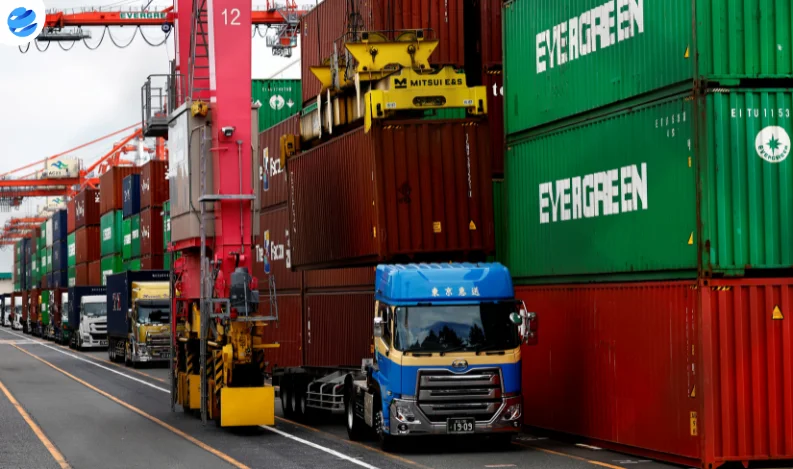Japan’s exports to the United States have declined for the first time this year, highlighting the early impact of new trade tariffs imposed by U.S. President Donald Trump. According to government data released Wednesday, shipments to the U.S. fell 1.8% in April compared to a year earlier. This marks a reversal from March, when exports had grown by 3.1%.
The slowdown dragged Japan’s trade surplus with the U.S. down to 780.6 billion yen ($5.4 billion) in April, compared to 846.9 billion yen in March. While total exports rose 2% year-on-year, the increase was the weakest since October 2024 and reflects slowing global demand, especially in key sectors.
The decline was especially sharp in transport equipment, including cars and auto parts, which saw a 4.1% drop in value. Automobiles are Japan’s largest export to the U.S., accounting for over 28% of all shipments in 2024. The sector has been directly hit by the U.S. administration’s 25% tariff on imported vehicles, steel, and aluminum.
In addition to these duties, Japan also faces a 10% general tariff on goods and a temporary 24% “reciprocal” tariff that was suspended shortly after being announced in early April. These measures, though currently paused, have created uncertainty for exporters and affected trade decisions.
Economic indicators are also pointing to broader weakness. Japan’s real GDP shrank at an annualized rate of 0.7% in the first quarter of 2025. Analysts say the decline is being driven by sluggish private consumption and soft export growth. Experts warn that net exports are likely to weigh down economic growth further in the second quarter.
Economists have also raised concerns about the unpredictability of U.S. trade policy. Stefan Angrick of Moody’s Analytics noted that inconsistent tariff decisions can cause ripple effects across economies and damage long-term growth. He also pointed out that Japan is unlikely to see a full return to pre-tariff trade conditions even if a deal is struck.
Trade talks between Japan and the U.S. have made limited progress so far. Japan’s chief trade negotiator, Ryosei Akazawa, said this week that the country will not rush into a trade agreement that puts its interests at risk. He reiterated Tokyo’s request for the U.S. to lift tariffs, but no breakthrough has yet been reached.
With trade tensions still unresolved and global demand under pressure, Japan’s export-driven economy may continue to face headwinds in the coming months.























